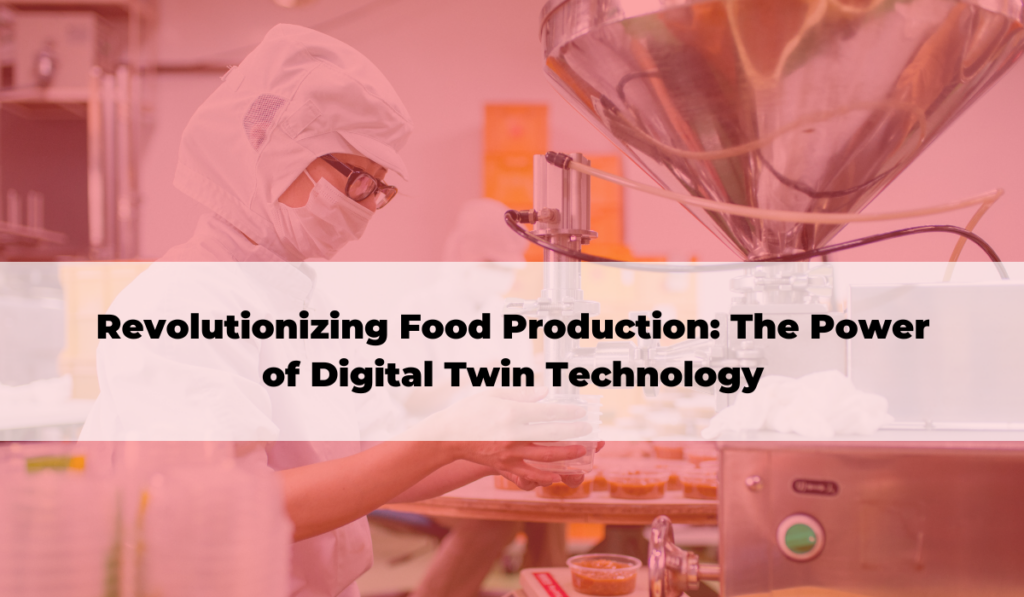This is the story of Digital Twin, a technology building the foundation of a new era in the manufacturing sector, granting small companies the possibility to reach new markets and address the ultimate challenges of digitalization. More than the story of technology, it is the story of women and men in the manufacturing sector creating opportunities to start a future for the industry that can be sustainable and business-oriented and offer new digital services.

The food industry is Europe’s most significant manufacturing sector in terms of jobs and value-added, with more than 17 million people working in food production. Nevertheless, Covid-19, the climatic crisis, and war have shaken the industry. Putting technology at this sector’s service with innovative solutions is fundamental to building a future-fit food system for all. As such, many European programs encourage SMEs and Startups to adopt digital transformation technologies and lead the change to more sustainable production.
Enhancing food safety through the most advanced technology
In 2023, Gergely Boromizsa, a technology consultant from Hungary, applied for a funded program to improve food safety in his company, Mirelite Mirsa, which produces various quick-frozen vegetables, fruits, and pasta. By adding smart sensors to the vegetable blancher, a machine used to pre-cook and sterilise indispensable equipment before quick-freezing and dehydration in the pre-treatment line, the SME can better monitor and control temperature, humidity, and other critical factors in real time. This small change can ensure food safety and reduce spoilage. Both topics are top priorities for the European Commission. According to the institution, the mission is to protect the citizens’ health and monitor their food, ensuring safety. Every European citizen has the right to know how the food they eat is produced, processed, packaged, labelled and sold.
Empower citizens to choose sustainable food
After the COVID-19 pandemic hit in 2020, the European Commission set up the Farm to Fork Strategy, a new comprehensive approach to how Europeans value food sustainability. This strategy aims to empower citizens to choose sustainable food and awaken all actors in the food chain to see this as their responsibility and opportunity. As stated by the European Union, it is about moving towards a more healthy and sustainable EU food system, a cornerstone of the European Green Deal. The objective is to create a healthy food environment, label food to allow consumers to choose healthy and sustainable diets, and fight against food waste. Horizon Europe, the EU’s key funding programme, allocated up to EUR 10 billion toward R&I in food, economy, natural resources, agriculture, fisheries, aquaculture, and the environment. It also emphasises utilising digital technologies and nature-based solutions in the agri-food sector. Technologies such as Digital Twin can help the global food industry face this significant challenge and reduce the possibility of food safety scandals that endanger people’s health. Real-time monitoring of production processes can reduce the risk of system failure and optimise the utilisation of material and human resources.
Digital Twin to avoid food waste and improve quality
The scale of food waste in the European Union is shocking — every year, about 88 million tonnes of food are wasted across Europe, for €143 billion. In this sector in particular improvising can be responsible for an enormous quantity of waste in the food sector. The factors of food waste in the value chain include:
- Product and packaging damage (farmers and food manufacturing)
- Inadequate storage/transport at all stages of the food chain including households (e.g. refrigerator temperatures)
- Lack of knowledge and/or misinformation on food waste’s environmental, social and financial impacts.
Digital Twin technologies can help reduce this waste by simulating the evolution of food conservation. Legumbres Tierrina Vaqueira is another SME in the food sector that decided to implement digital twinning. The company is dedicated to the cultivation, manufacturing and packaging of fresh and dry beans belonging to the Protected Geographical Indication “Faba de Asturias”. Up intelligence, an R&D company, partnered with them to introduce the technology to the production process. Right at the beginning, the very first barrier detected was the lack of data. The only way to face this issue was to study the conditions of pods’ storage and to monitor their evolution. After that, data were entered into the machine to simulate the process. According to its CEO, the results are less waste, less improvisation, more quality, and more revenue.
Digital Twin can give incredible superpowers to companies and workers participating in improving productivity and management of food production by doing real-time simulation, monitoring, scenario analysis, and giving visibility and transparency. Of course, it is a better way to conceive it, but it is also part of a global and common goal to achieve the challenges of major concerns in European food production and to align with the most rigorous standards.
Marjorie Grassler